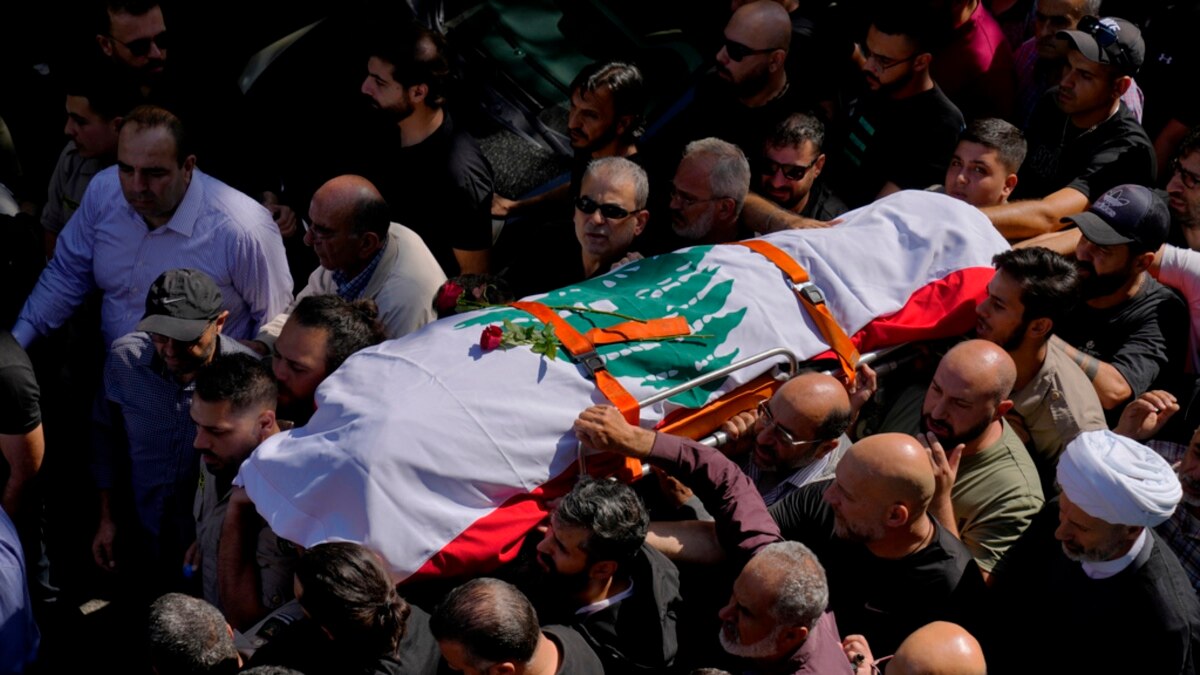Journalists Farah Omar and Rabie al-Maamari were killed by an Israeli drone strike on Tuesday, November 21 while on assignment for Al Mayadeen in the Tayr Harfa area in southern Lebanon.
Their driver, Hussein Akil, was also killed in the attack.
In a statement published on their social media pages, Al Mayadeen mourned the loss of its correspondent and videographer, holding Israel accountable for their deaths.
“It was a direct attack, it was not by chance,” said Al Mayadeen director Ghassan bin Jiddo.
Omar and Maamari were both wearing press vests and helmets, and were standing near a designated and clearly marked press car.
In the days preceding the attack, Omar posted on social media platform X about Israel’s deliberate attempt to terrorize journalists, calling on her colleagues to refuse silence and continue to expose the occupation’s crimes.
Until their last days, Omar and Maamari remained committed to their jobs, courageously covering events in the south despite ongoing airstrikes and shelling.
On November 21, they became the second and third journalists killed by Israeli shelling while on assignment in southern Lebanon.
In mid-October, photojournalist Issam Abdallah was killed by an Israeli airstrike while on assignment with Reuters. Abdallah’s accompanying colleagues and fellow journalists sustained injuries, including Christina Assi, who sustained serious injuries to both of her legs.
One day after the attack, it was announced that Lebanon would be submitting a formal complaint to the United Nations Security Council on Israel’s deliberate targeting and killing of Abdallah.
In a statement, Prime Minister Najib Mikati strongly condemned the killing of the Al Maydeen journalists and called for accountability.
“This attack proves once again that there are no limits to Israeli crimes, and that its only goal is to silence the media that exposes its crimes and attacks,” Mikati said. Lebanon is set to submit another formal complaint to the UN Security Council on Israel’s deliberate targeting and killing of journalists.
The Lebanese Press Syndicate also condemned the attack, saying it amounts to an assassination, calling upon a formal complaint to be lodged with the International Criminal Court and the International Court of Justice against Israel.
Hezbollah also released a statement condemning the attack.
“This crime, and the previous assassination of journalist Issam Abdallah, targeting the media envoy in Yaroun, and the killing of dozens of journalists in Gaza, reveal the crucial role played by the media in exposing the enemy’s terrorist acts. The Islamic resistance will not let this aggression and the loss of innocent lives go unpunished,” the group said.
During the hours following the attack, Hezbollah launched a heavy attack on various occupation army positions in the north of occupied Palestine, inflicting confirmed deaths and injuries among their ranks. The group has already committed itself to continue skirmishes along the border in support of the Palestinian resistance in Gaza, and in retaliation for any attacks Israel launches in the south.
The targeting and killing of journalists along the border coincides with discussions around a temporary ceasefire agreement between Israel and Hamas that same day.
Israel has historically been known to intensify its attacks in the days preceding a ceasefire, such as in the case of the 2006 war on Lebanon, where Israel continued attacking Lebanese areas and infrastructure until hours before a ceasefire went into effect.


